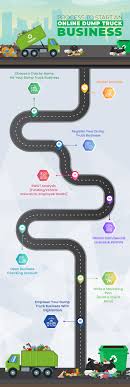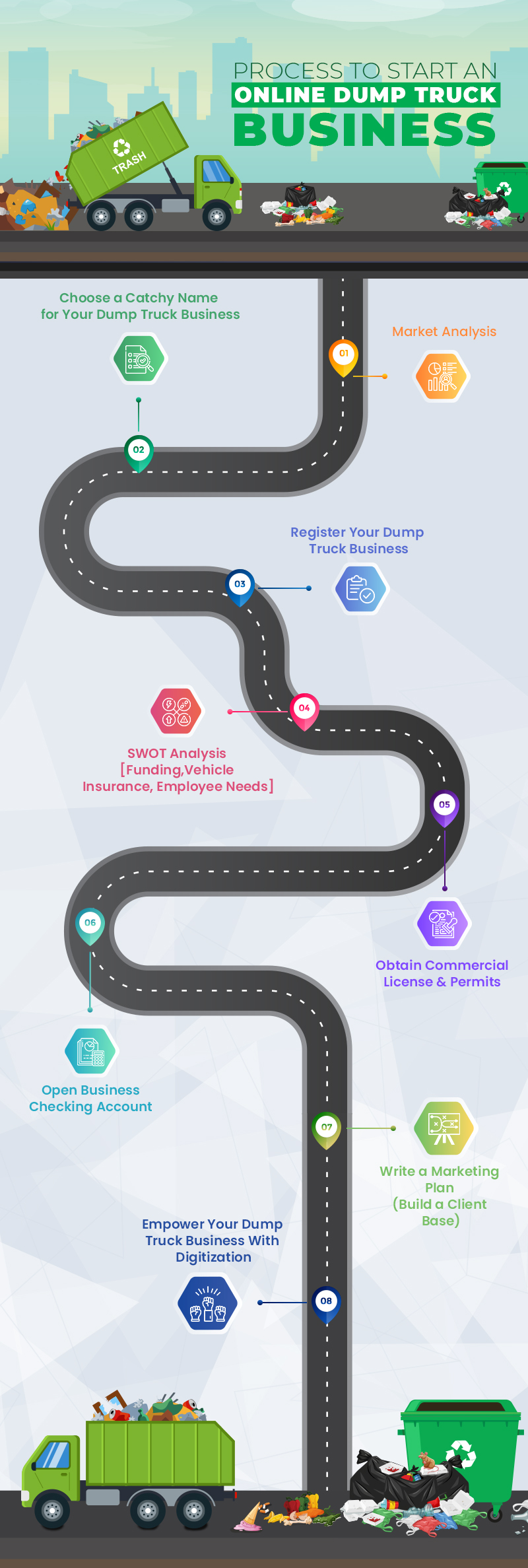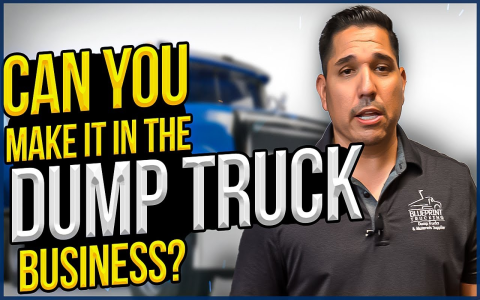Starting a Dump Truck Business: Your Essential Checklist
Starting a Dump Truck Business: Your Essential Checklist
So you’re thinking about starting a dump truck business? Let me tell you, it’s one of the most solid and rewarding paths in the trucking industry. As someone who’s spent over a decade crawling under rigs, talking with owners, and analyzing what makes a trucking operation tick, I’ve seen the key factors that separate thriving businesses from those that stall out. This isn’t just theoretical; it’s a practical, step-by-step guide drawn from real-world experience. Whether you’re a seasoned driver looking to be your own boss or an entrepreneur eyeing the construction sector, this essential checklist will walk you through the foundational steps to get your dump truck business rolling strong and profitable.
Crafting Your Dump Truck Business Blueprint
Before you even think about buying a truck, you need a plan. A business plan for your dump truck venture is your roadmap. It forces you to answer critical questions: Who are your target customers? Residential builders, large civil engineering firms, or road construction contractors? Your answer will dictate the type and size of truck you need. You must also project your operating costs—fuel, maintenance, insurance, permits—and set your hauling rates competitively. According to the American Trucking Associations, the trucking industry generated over $940 billion in revenue in 2023, highlighting the sector’s vast potential. A well-researched plan not only guides your decisions but is also essential if you need to secure financing from a bank or investor.

Navigating the Legal Maze: Licenses and Insurance
This is where many new businesses stumble. The legal requirements for a dump truck operation are non-negotiable. First, you’ll need to establish a legal business structure, such as an LLC, to protect your personal assets. Then, you must secure the right operating authority from the Federal Motor Carrier Safety Administration (FMCSA). This involves getting a USDOT number and an MC number if you’re crossing state lines. On the insurance front, you’ll need primary liability insurance, and most contractors will require you to have cargo insurance and a solid surety bond. Skimping on this step is a recipe for disaster. As one industry expert with a certified transportation background often says, “Proper licensing and insurance aren’t just red tape; they are the bedrock of a credible and sustainable trucking business.”
Choosing Your Workhorse: A Truck Buying Guide
This is my favorite part. Selecting the right dump truck is critical. You’re not just buying a vehicle; you’re investing in the primary tool of your trade. The choice between a standard dump truck, a semi-trailer end dump, or a transfer dump depends on the materials you’ll haul and the job sites you’ll access. Key considerations include engine power, axle configuration, and dump body capacity and material (e.g., aluminum for lighter weight, steel for durability).
| Truck Type | Best For | Key Consideration |
|---|---|---|
| Standard Single-Axle | Small residential jobs, tight spaces | Maneuverability |
| Tandem-Axle | Heavier loads, most common for general construction | Payload capacity vs. bridge law limits |
| Semi-Trailer End Dump | Large-volume hauling (e.g., gravel, asphalt) | Requires a semi-tractor, higher initial cost |
Always get a pre-purchase inspection from a trusted mechanic. I’ve seen too many buyers lose thousands on a truck that looked great but had hidden frame cracks or a transmission on its last legs.
Mastering the Numbers: Financial Management
Understanding your finances is what keeps the wheels turning. Your pricing strategy must cover all your costs and leave room for profit. Don’t just guess. Calculate your cost per mile (CPM), which includes variable costs like fuel and tires, and fixed costs like truck payments and insurance. A 2022 report from the National Private Truck Council found that the average marginal cost per mile for a commercial truck was over $2.00. You need to know your number. Use this to set your rates. Furthermore, invest in a simple accounting software to track every expense and invoice. Keeping a meticulous record from day one will save you from major headaches during tax season and help you spot financial trends in your dump truck business.
Finding and Keeping Great Clients
A truck without loads is just a expensive lawn ornament. Your number one task is to find consistent work. Start by building relationships with local construction companies, excavation contractors, and landscaping suppliers. A strong, professional reputation for being reliable and on time is your best marketing tool. Create a simple one-page flyer outlining your services and hit the pavement. Register with online load boards, but don’t rely on them exclusively as the rates can be highly competitive. The goal is to build a core group of 3-5 regular clients who provide a steady stream of work. Remember, in this business, your reputation is everything. One successful contract often leads to another through word-of-mouth referrals.
Operational Excellence and Safety Protocols
Running a safe and efficient operation is paramount. Develop a daily vehicle inspection routine (a pre-trip inspection is federally mandated) and a strict preventive maintenance schedule. This includes regular oil changes, greasing, and brake checks. A well-maintained truck has fewer breakdowns, which means more uptime and revenue. Safety extends beyond the truck. Ensure you and any drivers you hire are thoroughly trained on safe dumping procedures to avoid tip-overs, one of the most common and dangerous accidents for dump truck operations. Create a company safety manual and hold regular meetings. A safe record not only prevents tragedies but also keeps your insurance premiums manageable.
Frequently Asked Questions
Q: How much money do I need to start a dump truck business?

A: The startup costs can vary widely. If you’re financing a used tandem-axle dump truck, you might need $20,000 to $40,000 for a down payment. You also need to budget for startup legal fees, insurance down payments (which can be several thousand dollars), and operating capital to cover expenses for the first 3-6 months before you have a consistent cash flow. A total of $50,000 to $100,000 is a realistic range to start comfortably.
Q: Is owning a dump truck profitable?
A: Yes, a dump truck business can be very profitable, but it’s not a get-rich-quick scheme. Profitability hinges on careful cost control, consistent work, and effective maintenance. Many owner-operators report annual profits ranging from $50,000 to $100,000+ after all expenses, but this depends heavily on their location, the number of trucks, and their ability to secure well-paying contracts.
Q: What is the biggest challenge in the dump truck industry?
A> Beyond the initial capital, the biggest ongoing challenge is managing cash flow. Clients in construction can sometimes take 30, 60, or even 90 days to pay an invoice. You still need to cover fuel, repairs, and truck payments weekly or monthly. This makes having a financial cushion and diligent invoicing and collections absolutely critical for survival and growth.
Sources:
– American Trucking Associations

– Federal Motor Carrier Safety Administration (FMCSA)
– National Private Truck Council (NPTC)









